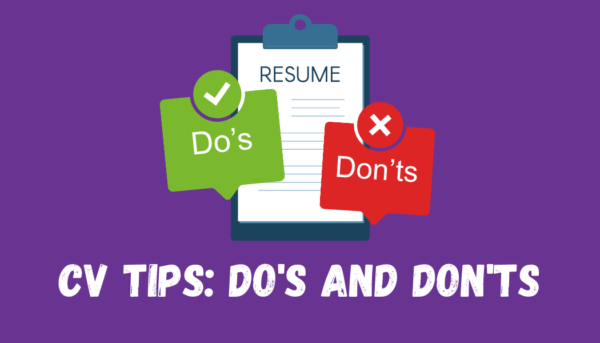For those who don’t already know what a CV is, where have you been? A CV is a formal document you hand to potential employers regarding your experience, qualities and interests in the hope of receiving a interview. A CV is part of an employer’s process in vetting candidates to make sure they’re getting the ideal candidate which matches their job description. However the question is, how do you determine what is worthy of adding to your CV? Well this article will outline perhaps an area not many have considered.

For most positions the successful candidate will have a glowing CV. One tailored specifically for the position with experience, the correct qualities and the attitude all to match. However what we’ve been trying to find out is whether a CV that includes statistics rather than experience holds more weight? There’s already a convincing case, with employers now looking for achievements within positions rather than the title acquired. The Head of Recruitment for Amazon actually said this regarding CV’s and how she vets them – “name-dropping companies or job titles doesn’t give any perspective on what their everyday job entails, but neither does providing a lengthy essay of an entire job description” – Celeste Joy Diaz.
An Executive CV writer and Career Strategist, Adrienne Tom, agrees.
“A job title alone is not enough to clarify personal value, complexity of skill set, or breadth of expertise,” Adrienne previously told The Business Insider. “What matters most in a resume will be the results that each individual has generated within their roles, regardless of title or rank.”
“Titles are great, but we want to understand what was the project you owned, what was the scope of a project, and what did you accomplish?” Diaz said. “The best is when it’s grounded in data.”
Perhaps we should encourage candidates to include how they exceeded their goals, how many projects they started or led, the size of their team or client base, or how many new clients they generated. This will give a clearer view on the progression they’ve achieved over the time of their position, not just the experience they’ve gained. This type of data could be used to predict whether they would be a success at the hirer’s business. Seeing how they developed a team over time could be an indicator as to whether they would suit a management position and the correct training could be provided to develop that candidate further.
No position is exempt from gaining some sort of metric.
Tina Nicolai, Executive Career Coach and Founder of Resume Writers’ Ink , previously told The Business Insider. “Metrics help employers determine if a person is capable of leading a team, managing clients, or growing the business.”

So in summary, perhaps the future of CV’s are that they will contain more data on the successes of candidates rather than the titles and accolades they’ve acquired. Perhaps this is something that will be implemented in the near future, however with no clear time frame it’s unsure whether the majority of employers will adapt to this new method. However that’s not to say replacing your entire CV with statistics is a good idea. Employers will still be looking for those qualities, experiences and interests. But perhaps the one thing to make you stand out will be to include those statistics and the successes you experience and how that developed you into a more well rounded candidate compared to your opposition.
After all what defines a persons CV the most? It’s whether they stand out and adding statistics is definitely one way to achieve that!
See out most updated CV tips here:



